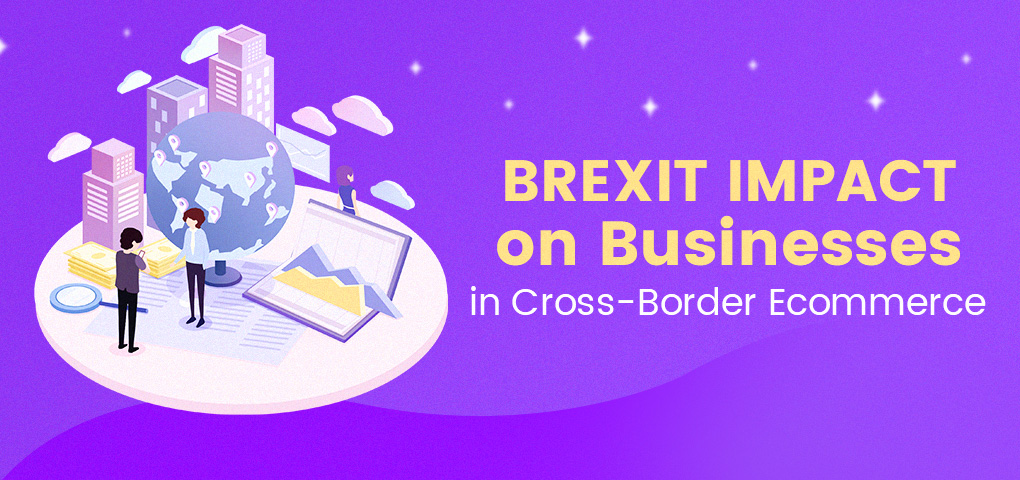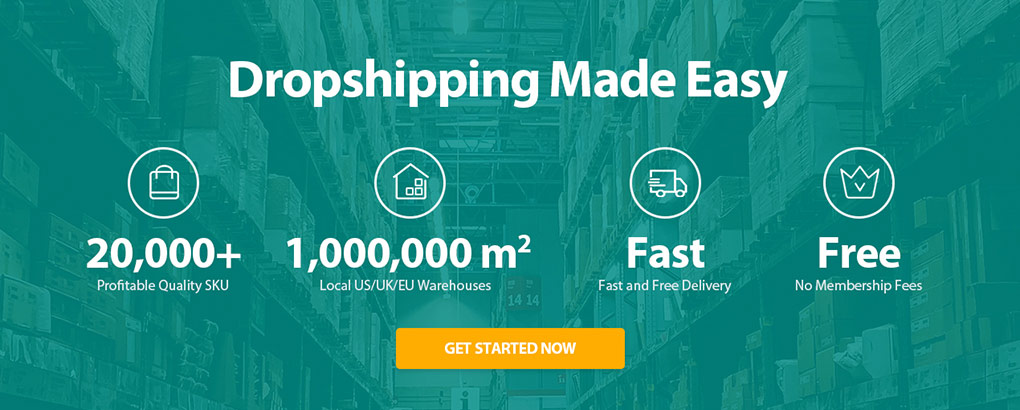Since about three years ago, many UK businesses have been apprehensive of the major effects that Brexit could have on the market. As of 31st December 2020, the Brexit transition period ends, EU and UK businesses are now more anxious about how businesses will be impacted than ever before. In the meantime, it is obvious that free trade and free movement of labor and goods between the UK and the EU will change.
However, there is no telling how deep the effects of increased tariffs and extra trade restrictions would have on businesses in Europe and the UK. The fact that Brexit is coming when the world is already being plagued by the Covid-19 global pandemic and economic recession, paints a gloomy picture already. Nevertheless, businesses must adapt to the Brexit reality to stay open for business.
How Brexit Impacts on Cross-Border E-Commerce Businesses
The Brexit economic impact on e-commerce businesses in Europe and the UK will largely depend on whether there's a Brexit deal or not. Below are the possibilities that we can expect from the outcome of Brexit.
1. No-Deal Brexit
A No-Deal Brexit means the UK may leave the EU without any substantial formal agreement on future trade issues. In this case, the UK will have to adopt the World Trade Organization (WTO) rules on trade. This would mean a major disruption to the status quo as UK trade rules in the EU differ markedly from those of the WTO.
The UK government has already made provisions for temporary tariffs plan in case of a No-Deal Brexit. However, this arrangement will be temporary. Eventually, tariffs will be higher for goods coming into the UK from Europe. Consumer products such as food, alcohol, and automobiles are projected to be on the frontline of impending tariff hikes. Moreover, some goods produced in the UK may be banned in the EU.
In a bid to reduce the cost of production, there are chances that many companies will have to relocate to either Europe or the UK. The relocation of companies will largely depend on whether the affected companies see potentials for greener pastures in the alternative location. As it stands, in a No-Deal Brexit, manufacturers will tend to move from the UK to the EU to bypass shipment delays, especially when shipping to EU member countries. The No-Deal Brexit is the worst outcome businesses can expect. However, EU and UK negotiators are working tirelessly to avoid this situation.
2. Brexit Deal
Where a Brexit Deal is reached, the UK gets a time frame to put trade and other issues in order while the UK government pays 39 billion Pounds before officially exiting the EU. Tough issues such as immigration, tariffs, and quality control standards must be negotiated before agreements are reached. This solution is seen as the most viable alternative. However, both parties involved will battle hard in negotiations till each party gets what is fair or close.
A Brexit Deal will provide clearer perspectives for e-commerce, and better cushioning for businesses during the post-Brexit era. Nevertheless, the issue with goods passing through the North Ireland border will also factor significantly in a possible Brexit deal.
3. Brexit Annulled
Initially, this seems the least likely outcome of Brexit. However as negotiations end in no tangible agreements, and December 31st draws nigh, the possibility of canceling Brexit is on the cards. A temporary annulment of Brexit is a possibility now that a No-Deal Brexit looms.
The UK government could revoke Article 50 to cancel Brexit or call for a second referendum which may eventually nullify the results of the 2016 Brexit referendum.
This situation for e-commerce is the least chaotic as dropshippers may not witness significant changes to what is already obtainable.
Will Brexit Affect Your Business?
If you have UK and EU customers, the chances are higher that your business will be affected by Brexit. However, if your dropshipping business draws fewer clients from the UK and EU, you may feel the effects of Brexit less. Brexit will affect the following:
1. Supply Chains
Brexit poses a real threat of increasing shipping fees and delaying logistics within the UK and EU. If your supply chains must pass through the UK or EU, you can be sure that Brexit will affect your business significantly.
2. Custom Tariffs
Where a No-Deal Brexit emerges, tariffs of EU and UK products may increase by staggering proportions. Checks on imports from either party will become more stringent and delays to shipments are certain.
3. Regulations
There are lots of new regulations that may arise from Brexit. For instance, some products made may in the UK be banned in the EU. Quality Assurance standards may also shift in ways that many companies will have to adopt different quality control measures in the post-Brexit era.
4 Tips for E-Commerce Businesses to Adapt to Brexit
Rather than living in the fear of the impact of Brexit on the UK economy, businesses are seeking ways to adapt to the present reality. Should Brexit come with a deal or not, UK and EU companies are exploring viable options to stay in business. Surely the e-commerce sphere is not immune to the outcome of Brexit. However, below are ways e-commerce businesses are adapting to possible Brexit realities.
1. Seek clarity with your logistics company
Ask your logistics company about their plans for the delivery of shipments between the UK and the EU. Where no concrete plans have been made, it is important that you know so decide whether to change your logistics company to a more proactive one or remain loyal to the present one.
2. Check up on suppliers
If your major suppliers operate majorly from the UK or EU, you need to know if their operations are adapting to Brexit's impact on business. For example, you want to know if there are any changes in the procedure of shipping.
If you can, order your products in larger quantities before the Brexit deadline expires. This will ensure that your business is not immediately interrupted by the Brexit outcome.
3. Inform your customers
If you have customers in the UK and EU, you must let them know how Brexit outcomes may affect how your business serves them. Keep your customer support lines open so you can entertain questions regarding delays in shipping. Update your store to reflect the new probable delivery time frame. Send out newsletters to help you understand the changes in your approach.
4. Cut your cost
One of the wisest decisions to make during and after Brexit is to cut shipping costs. One way of cutting shipping costs is to use reputable dropshipping companies that use multiple warehouses to deliver products worldwide and offer free shipping deals. SaleYee is one of such companies. SaleYee.com has warehouses in the UK, DE, and France. It also offers fast and free delivery of products within the EU. Dropshippers will do well to take advantage of SaleYee's proactive approaches towards Brexit to keep their business from harsh conditions. Check SaleYee.com for more than 20,000 SKUs and exciting products you can dropship without fear of Brexit constraints.
Conclusion
Brexit impact on businesses is still less evident for now. However, its effects will be more evident after the Brexit deadline expires. Businesses are adapting in many ways to stay afloat regardless of Brexit outcomes.





